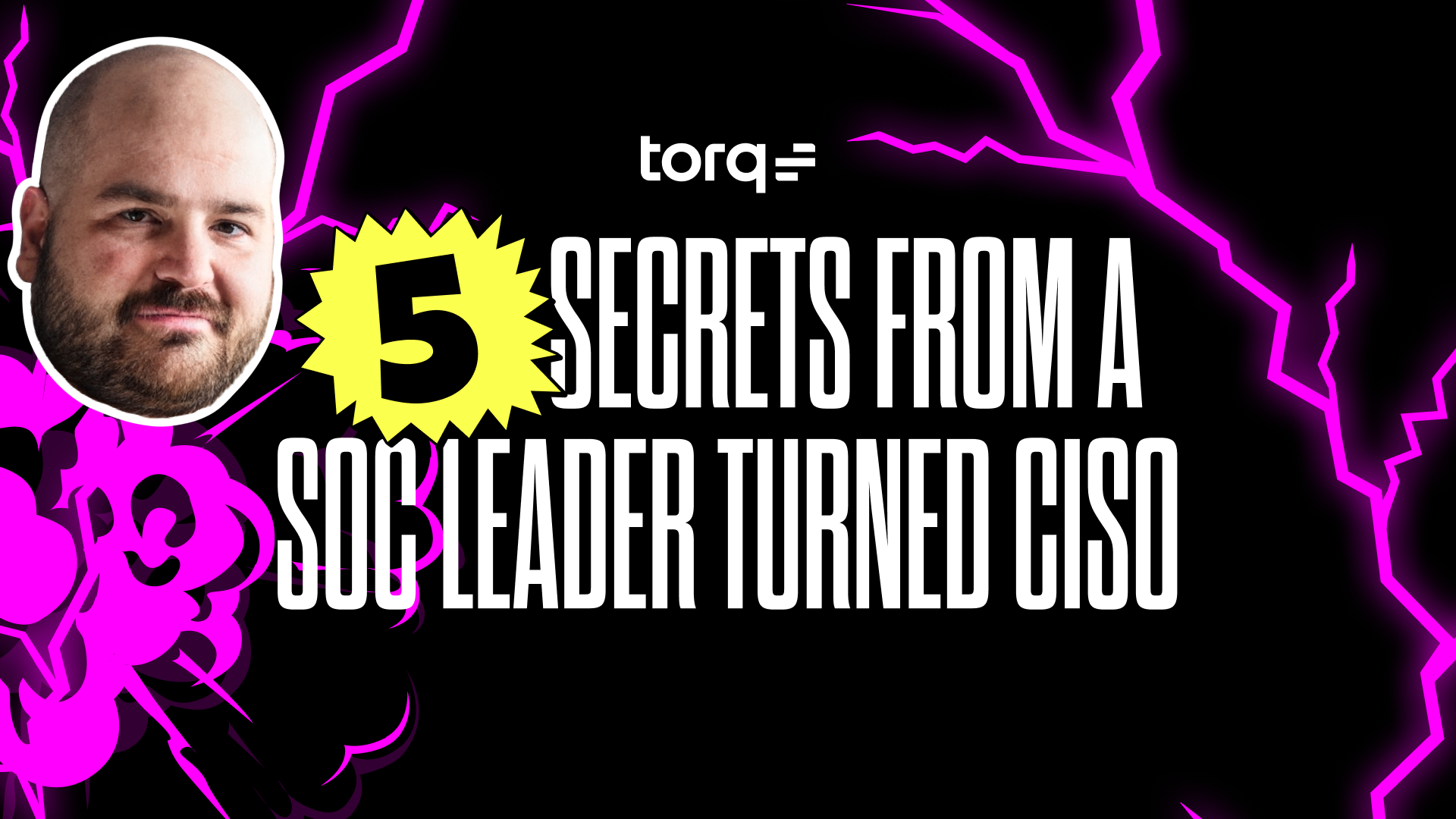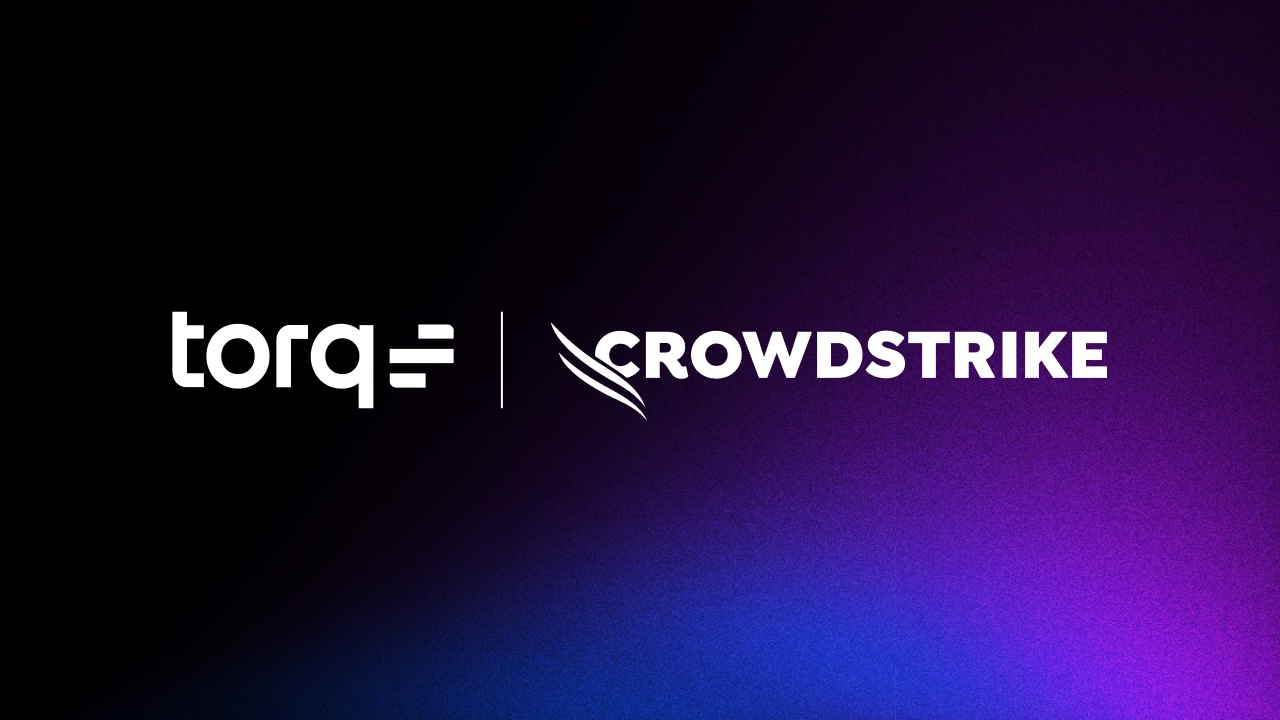The following is adapted from a conversation between Torq and Tyler Young, CISO at BigID. BigID produces software for data security, compliance, privacy, and governance. Read on to learn about how Torq Hyperautomation has helped BigID unlock new levels of efficiency and productivity by relieving their team of rudimentary tasks.
Introduction to Tyler and BigID
I’m Tyler Young, Chief Information Security Officer at BigID. I’ve been at BigID for two years, and I was brought in to take the company’s product security program to the next level. Prior to BigID, I was at Relativity for almost four and a half years where I was responsible for building out and scaling the security program. Prior to Relativity, I was at Zurich Insurance. Before that, I worked with some consulting firms and the US Government. I’ve had experience with multiple sectors am now focused in hypergrowth tech.
BigID’s Automation Journey
BigID’s automation journey consists of two different parts. First, we needed to bring in the right technologies that fed the right telemetry to our security engineering teams. Second, we wanted to save time by not building out an elaborate SOC. We talk all the time as an industry about burnout and talent shortage. Security teams want to build, they want to solve critical problems, they don’t want to be looking at alerts all day or wasting time on repetitive tasks that can be automated. That’s why we invested in Torq. We leverage Torq for the phishing aspects of what BigID is doing, as well as our level one and level two tasks. We built our automation strategy from scratch leveraging Torq.
Security teams want to build, they want to solve critical problems, they don’t want to be looking at alerts all day or wasting time on repetitive tasks that can be automated. That’s why we invested in Torq.
Tyler Young, CISO at BigID
Life Before Torq Hyperautomation
We had Torq Hyperautomation within my first five months of being at BigID, but in my last role, we used a SOAR platform. It took an entire team to operate and to manage it. I’m talking like six or seven people writing automation framework playbooks and writing threat detections in the platform. Instead of spending over a million dollars on the program, we could have been using those resources to build homegrown security solutions or leveraging open source that we could then offset some other security costs. I think a lot of places are leveraging these really robust SOAR capabilities, but they require a significant head count, a lot of funding and top-notch talent to write code, almost at the same level as some developers are writing.
Comparing Torq Hyperautomation to Traditional SOAR Offerings
Torq Hyperautomation’s click and drag capability and ability to integrate with companies like SentinelOne or Crowdstrike, combined with not having to write API connections and build connectors for all these different aspects make the program different from Legacy SOAR. Being able to just click and drag makes our job so much easier. I can do the same thing with one or two security engineers that we could do with ten when they’re having to write these things manually.
Benefits BigID Has Experienced with Torq Hyperautomation
Maybe this is the unconventional aspect of this, but I think the biggest benefit we’ve seen is our security engineers don’t have to focus on remedial workflows that they can build themselves in a playbook, which allows them to focus on more meaningful work. I’m a big believer in building security solutions, and leverage things off the shelf when possible. Torq allows our team to take the rudimentary tasks and automate them so that they can spend more of their time building.
Advice to CISO’s Considering Torq Hyperautomation
I think it’s important to do a cost benefit analysis of how much time and money you spend today on your current SOAR offering. It’s also important to gauge your employees’ happiness and satisfaction with their responsibilities. There’s already a talent shortage. Ask yourself, is my team bought into what they’re doing? If not, leverage something like Torq Hyperautomation to automate those repetitive tasks so your team is focusing on more meaningful work.
On the Future of AI and Security
I think there’s a place and time where all the alerts, all the telemetry is going to some type of autonomous agent that’s leveraging AI in some capacity. In the future we’ll be able to understand the attacks that are happening in real time, something that’s lacking today with AI. If you have threat detections that are happening and updating in real time, then you have the ability to block and respond to those in real time. In a perfect world, I see AI enabling security teams to be focused on building solutions that are more custom tailored to your needs.
Want to learn more about Torq Hyperautomation? Get a demo.



